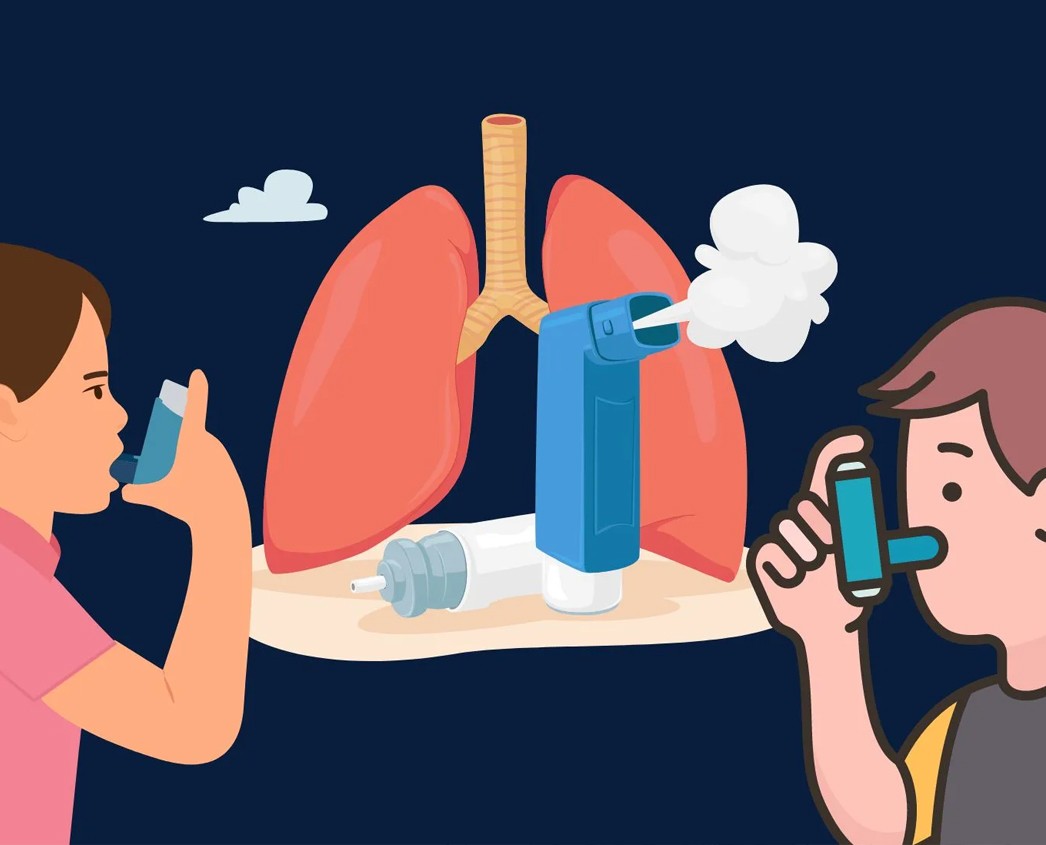Breathing Freely: TCM Insights on Asthma and Holistic Healing
In Traditional Chinese Medicine (TCM), asthma is understood as a disorder of the respiratory system involving imbalances in the body's vital energy (Qi), the organs, and the interaction of various pathogenic factors. Here's a detailed overview of asthma in TCM, covering causes, symptoms, syndromes, diagnosis, treatment, dietary recommendations, cautions, and more:
Causes of Asthma in TCM:
- External Pathogens:
- Invasion of external factors such as Wind, Cold, Heat, or Dampness affecting the respiratory system.
- Exposure to allergens or environmental triggers may contribute.
- Weak Lung Qi:
- Insufficient Lung Qi (energy) to regulate and control the respiratory process.
- Weakened Lung function due to factors like chronic illness, fatigue, or emotional stress.
- Spleen and Kidney Deficiency:
- Weakness in the Spleen and Kidney systems affecting the body's ability to transform and transport fluids.
- Chronic deficiencies may lead to the accumulation of Phlegm, a common factor in asthma.
Symptoms of Asthma in TCM:
- Wheezing:
- Whistling or hissing sound during breathing, especially during exhalation.
- Severity may vary, and wheezing is a hallmark symptom of asthma.
- Shortness of Breath:
- Difficulty breathing, particularly during physical exertion or in response to triggers.
- Breathlessness may be accompanied by a feeling of tightness in the chest.
- Coughing:
- Dry or productive cough, often with difficulty expelling phlegm.
- Coughing fits may worsen at night or in the early morning.
- Chest Tightness:
- A sensation of constriction or tightness in the chest.
- This feeling may be intermittent or persistent.
In Person With Heshoutang Natural Health Members
With Heshoutang Natural Health Online Members
Fill Out the Questionnaire by yourself
Syndromes Associated with Asthma:
- Lung Qi Deficiency Syndrome:
- Symptoms may include a weak cough, weak voice, and spontaneous sweating.
- Lung Qi is insufficient to regulate the respiratory process.
- Cold-Phlegm Syndrome:
- Symptoms may include a productive cough with white or clear phlegm.
- Exposure to Cold contributes to the formation of Phlegm.
- Heat-Phlegm Syndrome:
- Symptoms may include a cough with thick, yellow phlegm and a feeling of heat.
- Heat contributes to the thickening of Phlegm.
Diagnosis in TCM:
- Pulse and Tongue Diagnosis:
- A weak or floating pulse may indicate Qi deficiency or external invasion.
- Examination of the tongue coating and color provides insights into the presence of pathogenic factors.
- Observation and Inquiry:
- Assessing the frequency and severity of asthma attacks.
- Inquiring about triggers, environmental factors, and the overall health of the individual.
- Breath Sounds:
- Listening for specific sounds during breathing, such as wheezing or rattling.
- The nature and location of these sounds help in diagnosis.
TCM Treatment Approaches:
- Acupuncture:
- Stimulating specific points to tonify Lung Qi, disperse external pathogens, and regulate the flow of Qi.
- Common points include Lung 9 (Taiyuan) and Dingchuan (Extra Point for Asthma).
- Herbal Medicine:
- Prescribing herbal formulas to address the underlying pattern of disharmony.
- Common herbs include Ma Huang (Ephedra) for opening the airways and Xing Ren (Apricot Seed) for calming cough.
- Cupping Therapy:
- Applying cups to the back to promote blood and Qi circulation and alleviate respiratory symptoms.
- Cupping can help relieve muscle tension and enhance the effectiveness of treatment.
Diet Helps:
- Anti-Inflammatory Foods:
- Emphasize a diet rich in anti-inflammatory foods such as fruits, vegetables, and omega-3 fatty acids.
- Foods like ginger and turmeric may have anti-inflammatory properties.
- Warm and Nourishing Foods:
- Consume warm, cooked foods to support the Spleen and overall digestive function.
- Avoid cold or raw foods that may contribute to the accumulation of Cold-Phlegm.
Cautions:
- Avoiding Cold Exposure:
- Protect against exposure to cold and damp environments.
- Dress warmly and maintain a comfortable indoor temperature.
- Identifying Triggers:
- Identify and avoid triggers such as allergens, pollutants, or emotional stressors.
- Individual triggers may vary, so personalized awareness is crucial.
Lifestyle Recommendations:
- Breathing Exercises:
- Engage in practices like Qi Gong or Tai Chi to promote deep and controlled breathing.
- Breathing exercises can enhance lung function and reduce anxiety.
- Stress Management:
- Incorporate stress-reducing practices like meditation or mindfulness.
- Emotional stress can contribute to asthma symptoms.
- Physical Activity:
- Regular, moderate exercise can improve lung capacity and overall respiratory health.
- Choose activities suitable for individual fitness levels.
It's crucial to consult with a qualified TCM practitioner for an individualized assessment and treatment plan. TCM treatments aim to address the root causes of asthma, regulate the flow of Qi, and restore overall balance in the body's energy for long-term respiratory health.
When you subscribe to the blog, we will send you an e-mail when there are new updates on the site so you wouldn't miss them.














Comments